1. Maude Gets an Abortion – Maude
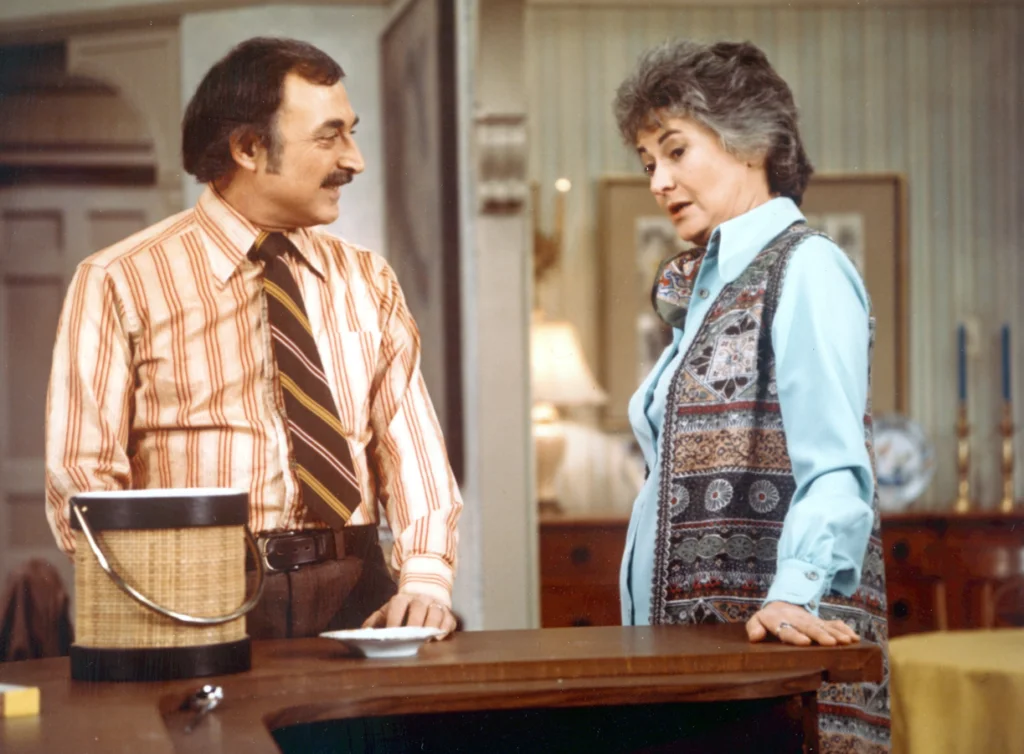
When Maude aired in 1972, no one expected a sitcom to tackle abortion. But Bea Arthur’s character, Maude Findlay, openly discussed her unplanned pregnancy and ultimately chose to have the procedure. For audiences at the time, this was groundbreaking, controversial, and shocking. Many stations refused to re-air the episodes, yet the show bravely dove into an issue that most networks wouldn’t even touch. The fallout was massive, with both praise and backlash pouring in.
What makes this moment so memorable is how it balanced humor with sincerity. Maude was strong, witty, and independent, and the storyline treated her decision as her own. It reflected a real debate happening in America before Roe v. Wade was even decided. While divisive then, today it’s remembered as one of the boldest moves in sitcom history. It still resonates for how it refused to sugarcoat a difficult choice.
2. Archie Bunker Meets Sammy Davis Jr. – All in the Family
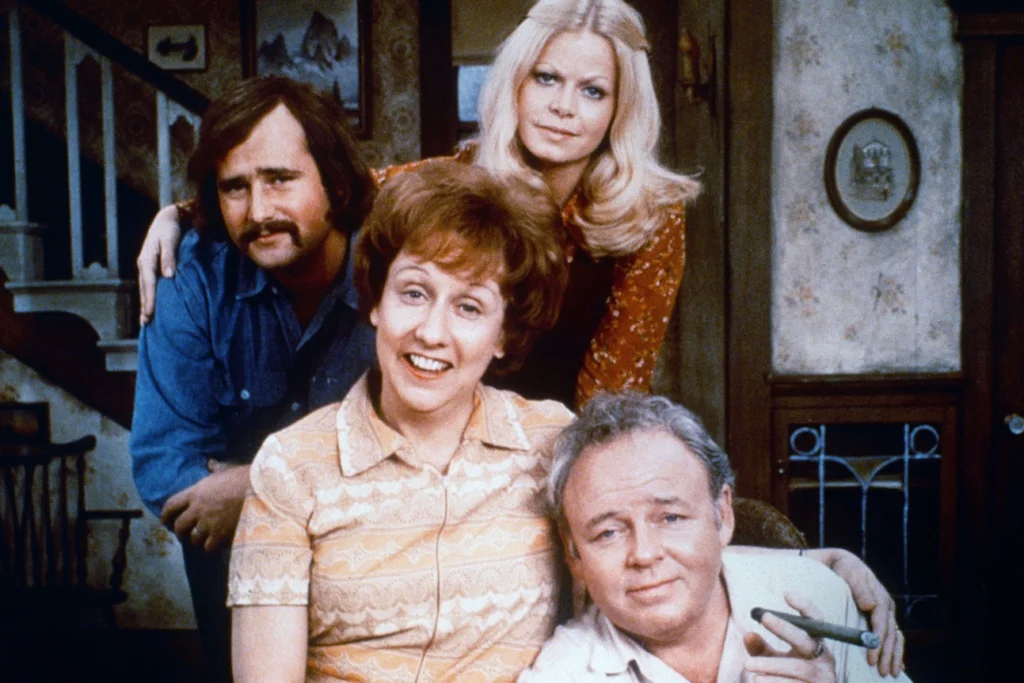
Archie Bunker was known for his bigoted views, so when Sammy Davis Jr. guest-starred, viewers knew sparks would fly. The episode played with Archie’s discomfort and outdated attitudes, but it turned on its head when Davis planted a kiss on Archie’s cheek. The live studio audience roared, and millions of viewers at home were floored. It was a hilarious but powerful moment that challenged prejudices with laughter.
Even today, the episode is talked about for how cleverly it dealt with racism through comedy. Archie’s shocked reaction has become an iconic sitcom image. The genius of All in the Family was that it made audiences laugh and squirm at the same time. Sammy Davis Jr.’s appearance elevated the show into cultural history. That kiss still feels like a small but mighty triumph.
3. Edith’s Close Call with Assault – All in the Family

While Archie grabbed the headlines, Edith Bunker had one of the most dramatic moments in sitcom history. In a two-part episode, she narrowly escaped an attempted assault in her own home. For a character so often portrayed as gentle and naive, it was heartbreaking to watch her in such danger. The tension stunned audiences who weren’t expecting this kind of heavy storyline in a sitcom.
What made it even more powerful was how Edith’s trauma lingered afterward. She wasn’t magically fine in the next episode, and her vulnerability added a layer of realism rarely seen in comedies at the time. Viewers related deeply, and many praised the show for not shying away from the fear women faced. It’s still remembered as one of Jean Stapleton’s finest performances. The raw honesty makes it unforgettable.
4. Mork’s Debut – Happy Days
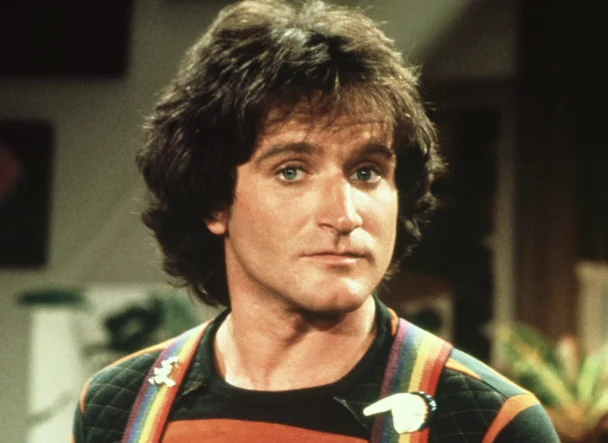
In 1978, Happy Days did something completely unexpected: it introduced an alien named Mork from Ork, played by Robin Williams. The bizarre sci-fi twist felt completely out of place for a nostalgic sitcom about the 1950s. Yet, Williams’ manic energy won everyone over, turning what could’ve been a gimmick into television magic. Viewers were stunned by the surreal humor and Williams’ improvisational genius.
The character became so popular that he spun off into his own hit show, Mork & Mindy. Looking back, this was the start of Robin Williams’ legendary career. The fact that an alien storyline worked on a wholesome family sitcom shows how flexible TV could be. It was shocking, weird, and unforgettable. That one guest spot changed television history.
5. The Goodbye of Henry Blake – M*A*S*H
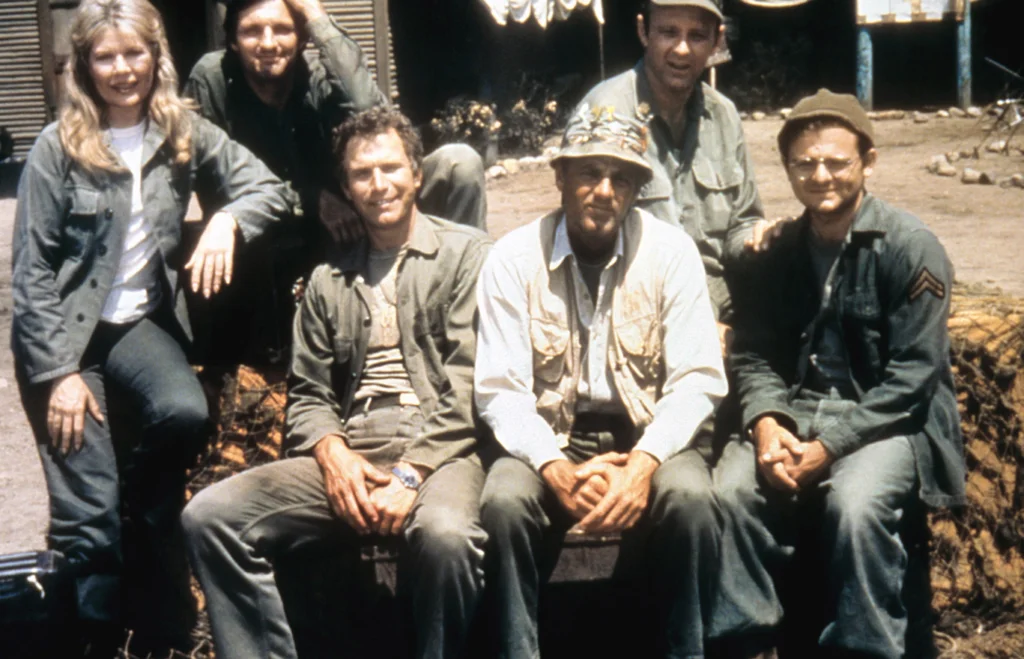
In 1975, M*A*S*H shocked viewers by killing off Lt. Colonel Henry Blake. After announcing he was going home, audiences expected a happy send-off. Instead, the closing moments revealed his plane had been shot down, with no survivors. It was a gut punch that left millions stunned. For a sitcom to deliver tragedy like that was almost unheard of.
The cast reportedly wasn’t told until the scene was filmed, which made their reactions even more real. The decision showed that war doesn’t always give happy endings, even in comedy. It was a turning point in television storytelling. Fans still talk about the shock they felt watching it live. It remains one of the most haunting moments in sitcom history.
6. James Evans’ Death – Good Times
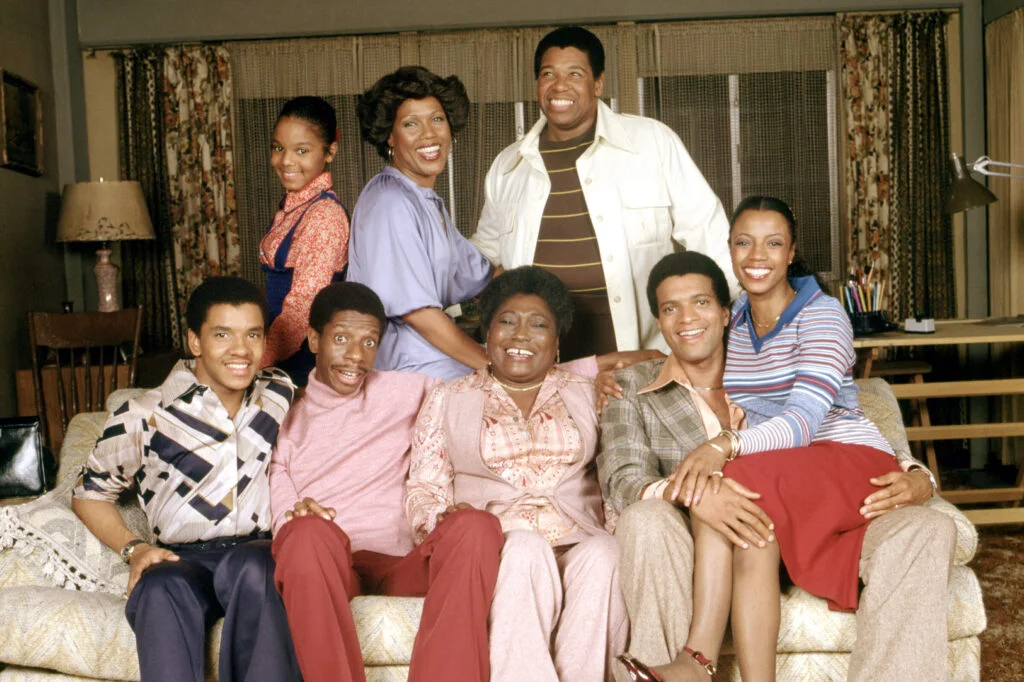
In 1976, Good Times rocked viewers with the unexpected death of James Evans, played by John Amos. His absence left the Evans family reeling, and the emotional fallout felt real. Florida’s grief, especially her cry of “Damn, damn, damn!” became one of the most iconic moments in TV history. It was a shocking and unflinching way to deal with the departure of a major character.
The decision was risky, but it paid off by grounding the show in reality. Life wasn’t always fair, especially for a struggling family in a housing project. The moment gave the sitcom a layer of authenticity that struck a chord with viewers. Even decades later, that scene is remembered as raw and heartbreaking. It proved sitcoms could handle tragedy without losing their soul.
7. The Jeffersons Move On Up – All in the Family/The Jeffersons
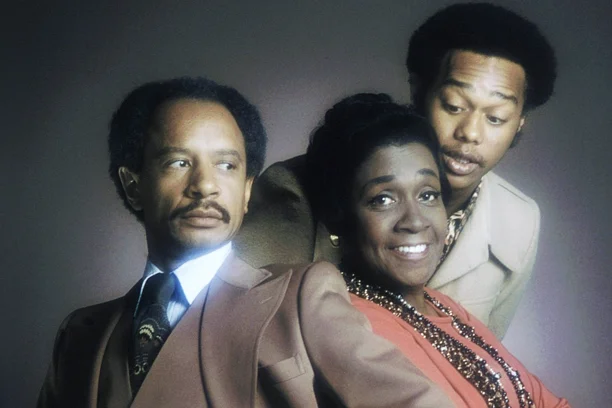
George and Louise Jefferson’s move from Queens to a “deluxe apartment in the sky” wasn’t just a plot twist—it was groundbreaking. In 1975, the spinoff The Jeffersons showed a successful Black family thriving in luxury. For audiences used to seeing stereotypes or struggling families, this was shocking in the best way. The bold portrayal of upward mobility was a statement.
The theme song alone felt like a celebration of progress. Viewers loved George’s loud mouth and Louise’s grounded wisdom. The show broke barriers while keeping its humor sharp. It was a moment that changed TV representation forever. Even now, that first move-in episode feels revolutionary.
8. Mary Richards Stays Single – The Mary Tyler Moore Show

Audiences in the ’70s were used to sitcom heroines who eventually got married. But Mary Richards, played by Mary Tyler Moore, stayed single throughout the show. The series finale in 1977 made it clear: her independence was the point. For many viewers, that was surprising and even unsettling. But it also felt empowering, especially to women carving their own paths.
The decision was shocking because it went against decades of sitcom tradition. Mary’s single life wasn’t treated as sad, but rather as full and fulfilling. She had friendships, a career, and agency. That closing shot of Mary turning off the lights in the newsroom still hits hard. It was a bold ending that still feels fresh.
9. Jack Tripper’s Living Arrangement – Three’s Company
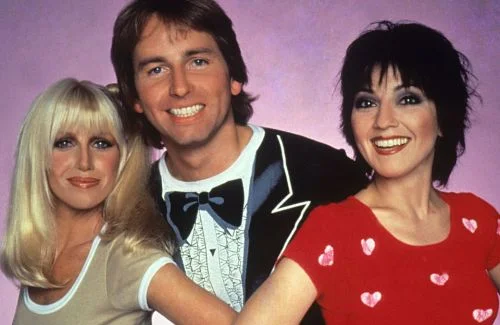
When Three’s Company premiered in 1977, the idea of a man living with two single women was eyebrow-raising. To make it “acceptable,” Jack pretended to be gay so the landlord would allow it. For the time, this was both scandalous and hilarious. Audiences couldn’t believe a sitcom was poking fun at sexuality so openly.
The setup led to years of comedy, but the shock value was undeniable. Jack’s charade challenged stereotypes while relying on farce. Viewers tuned in both for the laughs and for the daring setup. It may seem tame now, but in the ’70s it was edgy. That risky premise is why the show became such a hit.
10. Hawkeye’s Breakdown – M*A*S*H
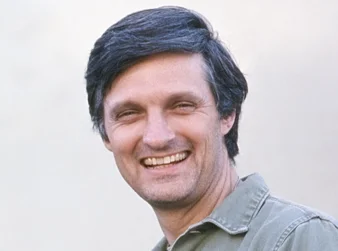
While M*A*S*H was known for blending humor and heart, one of its most shocking moments came when Hawkeye Pierce suffered a breakdown. In the finale, he revealed his guilt over a woman smothering her baby to keep quiet during an escape. It was devastating, raw, and unlike anything sitcom audiences had seen before. People sat in stunned silence as it unfolded.
What made it so impactful was Alan Alda’s performance, mixing grief with rage and regret. It was a bold reminder that war trauma runs deep. While M*A*S*H often made viewers laugh, this moment reminded them of the cost of conflict. It shocked audiences then and still hits hard today. It’s one of TV’s most unforgettable endings.
11. Fonzie Jumps the Shark – Happy Days
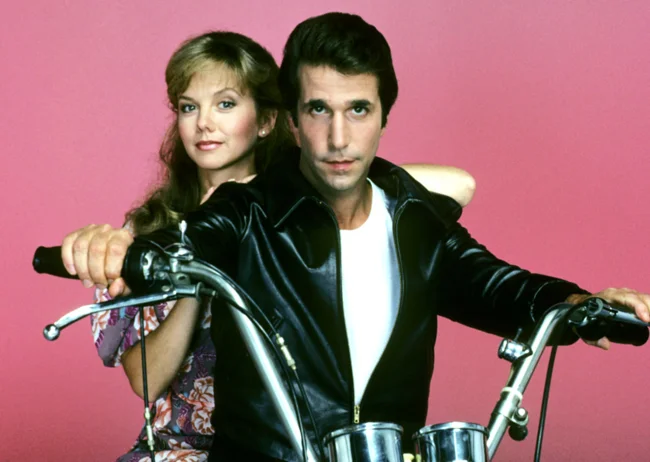
In 1977, Fonzie literally jumped over a shark on water skis. At the time, viewers were shocked not by the stunt, but by how absurd it was. Many felt the show had crossed a line from charming nostalgia to cartoonish spectacle. The phrase “jumping the shark” was born, and it still defines the moment a show goes too far.
Yet, despite the criticism, it’s an iconic piece of television history. Henry Winkler’s cool confidence made the scene oddly watchable. Fans still debate whether the show declined after that moment. Either way, it was a turning point. The shock may have been disappointment, but it holds up as a cultural landmark.
12. Laverne and Shirley’s Bottle-Capping Chaos – Laverne & Shirley
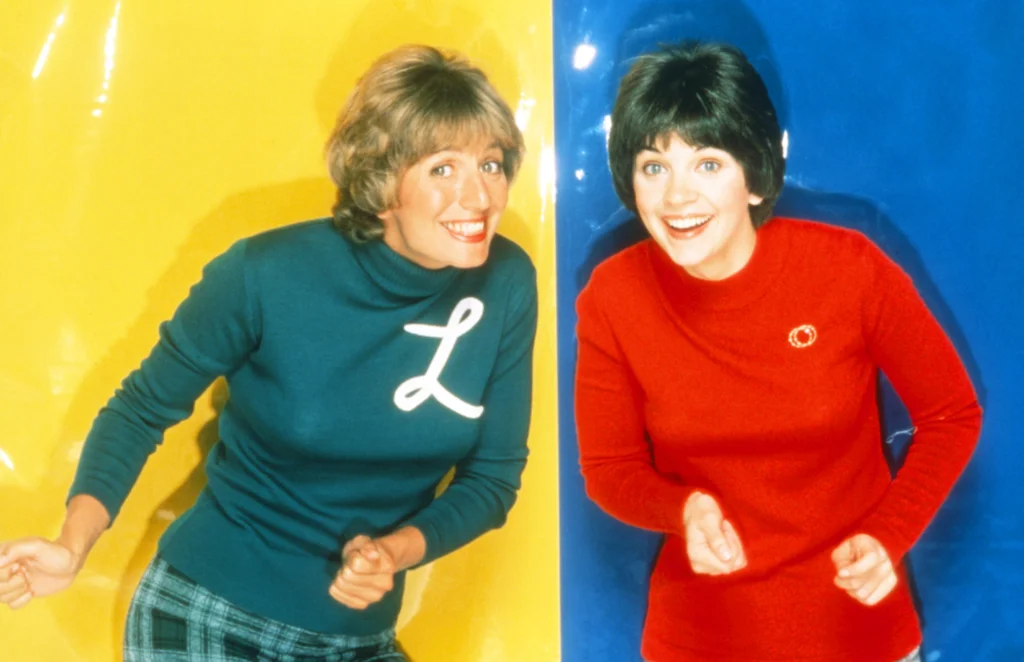
In the first season of Laverne & Shirley, the girls worked at Shotz Brewery, and one episode showed them hilariously capping bottles on the assembly line. What started as simple work quickly spun out of control, with bottles flying and foam exploding everywhere. Audiences were stunned by the wild physical comedy, which felt more like classic slapstick than a ’70s sitcom. It was a refreshing and unexpected twist.
That scene became instantly iconic and is still referenced today. Penny Marshall and Cindy Williams showed incredible comedic timing that rivaled legends like Lucy and Ethel. The shocking part wasn’t scandal—it was how outrageously funny two women could be in a factory setting. The moment proved female-led comedy could be just as daring. It’s still a joy to watch decades later.


